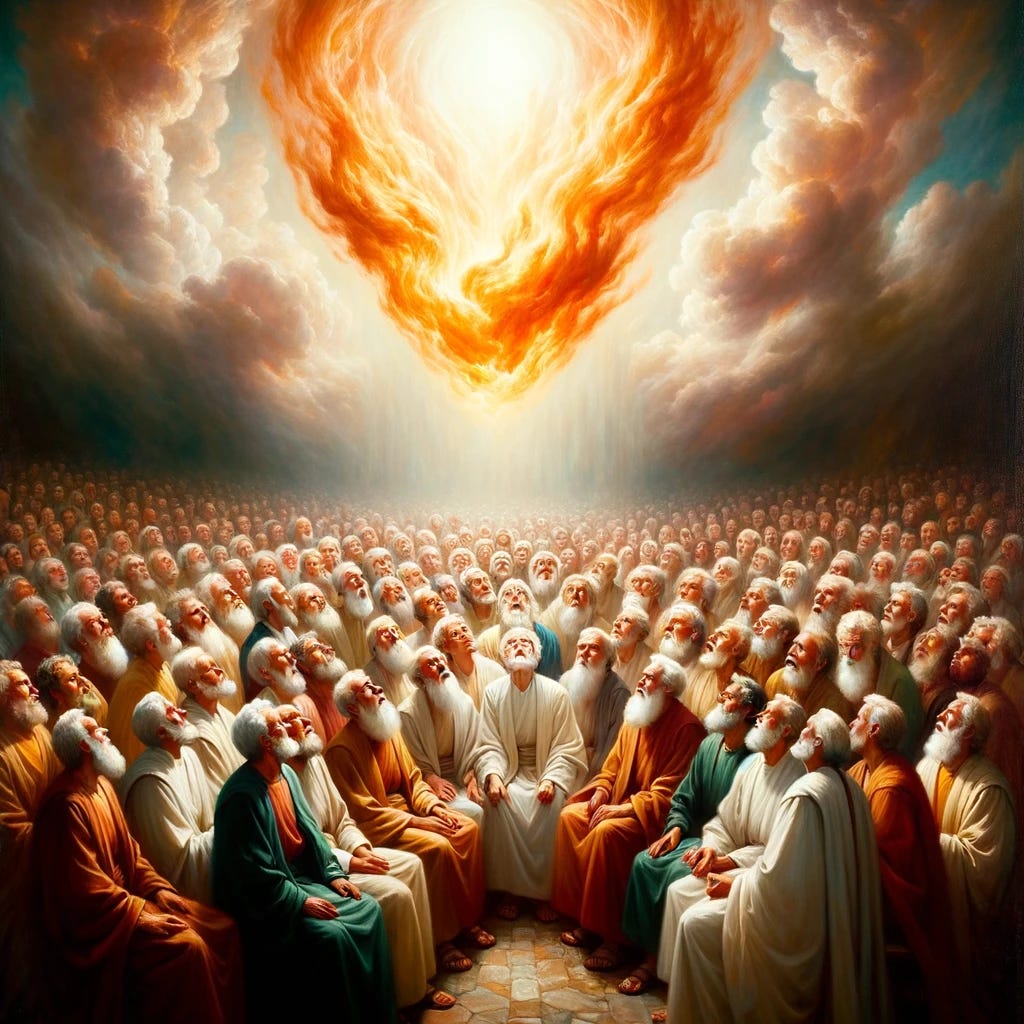From Division to Unity: Tracing the Spiritual Arc from Babel to Pentecost
Understanding the Divine Design in Human Communication and Unity.
In the grand tapestry of biblical narratives, the stories often resonate with each other, painting a cohesive picture of divine intent and human journey.
Two seemingly distinct stories, the Tower of Babel from the book of Genesis and the Pentecost from Acts of the Apostles, provide a fascinating study in contrasts and divine symmetries.
Here's how these two events, separated by ages, beautifully converge and offer profound insights into God's design for human communication and unity.
The Tower of Babel: A Quest for Heights
The story of the Tower of Babel, found in Genesis 11:1-9, unfolds in a world where humanity speaks a single language. United in purpose and voice, they decide to build a tower reaching the heavens, intending to make a name for themselves and avoid being scattered across the earth.
This act, driven by pride and a desire to challenge divine boundaries, displeases God. In response, God confuses their language, causing them to no longer understand one another. The result? Their unified project crumbles, and they scatter across the earth, divided by language and geography.
Pentecost: The Divine Gift of Understanding
Fast forward to the New Testament, and we encounter the Pentecost in Acts 2. The apostles, after the Ascension of Jesus, gather in Jerusalem. During this gathering, a miraculous event occurs: the Holy Spirit descends upon them, and they begin to speak in different tongues.
What's astonishing is that the diverse crowd in Jerusalem—comprising people from various regions and languages—each hears the apostles in their native tongue. Instead of division, the gift of the Holy Spirit brings unity and understanding.
Connecting the Dots: Babel and Pentecost
Language and Unity: At Babel, a single language led to human pride and ambition, resulting in division. At Pentecost, multiple languages became the medium of divine grace, leading to unity in diversity.
Human Intent vs. Divine Purpose: In Babel, humans sought to elevate themselves, challenging divine boundaries. At Pentecost, the apostles were elevated by the Holy Spirit, not for their glory but for spreading the message of salvation.
The Circle of Communication: Babel represents the breakdown of human communication, while Pentecost symbolizes its restoration. It's as if God, seeing the divisions of Babel, provided a remedy during Pentecost.
Conclusion
The journey from Babel to Pentecost offers a profound reflection on human ambition, divine intervention, and the power of communication.
While Babel stands as a testament to the consequences of unchecked human pride, Pentecost offers hope, showing that when guided by the Divine, even barriers like language can be overcome, leading to unity and understanding.
Together, these stories remind us that true unity is achieved not by human might or ambition, but by aligning with the divine purpose and embracing the gifts of the Spirit.


